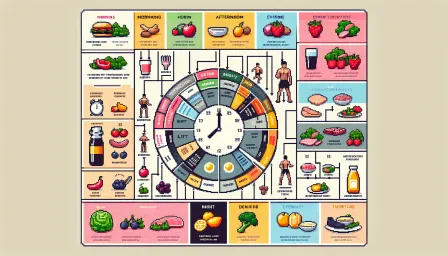Discover the Surprising Low-Carb Diet Benefits and Risks You Need to Know

Explore the comprehensive guide on low-carb diet benefits and risks, backed by scientific research. Make informed decisions about adopting a low-carb lifestyle.
Low-carb diets have gained immense popularity over the past several years, promising benefits like weight loss, improved energy levels, and better management of blood sugar levels. However, like any diet, it comes with its set of risks and potential downsides. This article delves into the surprising benefits and risks of a low-carb diet, helping you make an informed decision about whether this dietary approach is right for you.
Understanding Low-Carb Diets
A low-carb diet limits the intake of carbohydrates, typically found in sugary foods, pasta, and bread. Instead, it emphasizes foods high in protein and fat. There are various types of low-carb diets, including the ketogenic diet, Atkins diet, and the Paleo diet, each with its own guidelines and restrictions.
Benefits of a Low-Carb Diet
1. Weight Loss
One of the most cited benefits of low-carb diets is weight loss. By reducing carb intake, the body enters a state called ketosis, where it burns fat instead of carbohydrates for energy. Studies have shown that low-carb diets can be more effective for short-term weight loss compared to low-fat diets.
2. Improved Blood Sugar Control
Low-carb diets can be particularly beneficial for individuals with type 2 diabetes or insulin resistance. These diets help stabilize blood sugar levels by reducing carbohydrate intake, improving insulin sensitivity, and reducing the need for diabetes medication.
3. Enhanced Mental Clarity and Focus
Some people report improved mental clarity and cognitive function on a low-carb diet. This may be due to the stable blood sugar levels and the brain's efficient use of ketones (a byproduct of fat burning) as a source of energy.
4. Reduced Appetite and Cravings
Low-carb diets can decrease appetite and hunger, which can make it easier to reduce caloric intake and lose weight. High-protein and high-fat foods are more satiating, ensuring that you feel full and satisfied for longer periods.
5. Cardiovascular Health
While the impact of low-carb diets on heart health is still debated, some studies suggest that they may improve certain cardiovascular markers like HDL cholesterol (the "good" cholesterol) and triglycerides.
Risks and Potential Downsides
1. Nutrient Deficiencies
Restricting carbohydrate-rich foods can lead to deficiencies in essential nutrients such as fiber, vitamins, and minerals. It's crucial to include a variety of low-carb vegetables and fruits to mitigate this risk.
2. Increased Risk of Heart Disease
High intake of saturated fats and red meats often associated with low-carb diets may increase the risk of heart disease. Balancing the diet with healthy fats from sources like avocados, nuts, and fatty fish is important.
3. Potential for Disordered Eating
The restrictive nature of low-carb diets can sometimes lead to unhealthy relationships with food, including eating disorders like orthorexia and binge eating. A balanced approach and professional guidance are recommended.
4. Initial Side Effects (Keto Flu)
When transitioning to a low-carb diet, some people experience flu-like symptoms known as "keto flu," including headache, fatigue, dizziness, nausea, and irritability. These symptoms usually subside within a week or two.
5. Long-term Sustainability
Maintaining a low-carb diet over the long term can be challenging due to its restrictive nature, potentially leading to feelings of deprivation and difficulty adhering to the diet.
Conclusion
A low-carb diet can offer numerous benefits, from weight loss and improved blood sugar control to enhanced mental clarity and reduced appetite. However, it's essential to weigh these benefits against potential risks such as nutrient deficiencies, increased heart disease risk, and the challenging nature of sustaining the diet long-term. Consulting with a healthcare professional or a registered dietitian can provide personalized guidance and support, ensuring that you make the best dietary choices for your health and wellbeing.



























